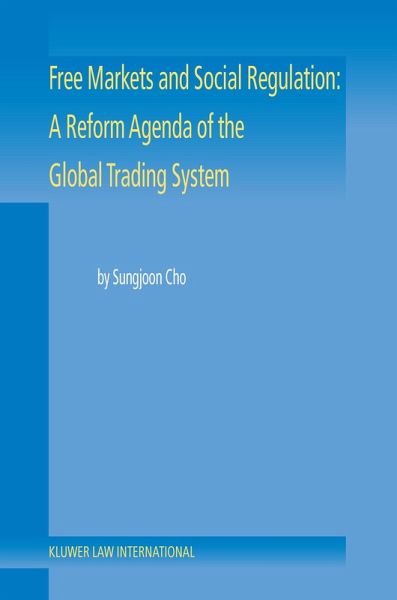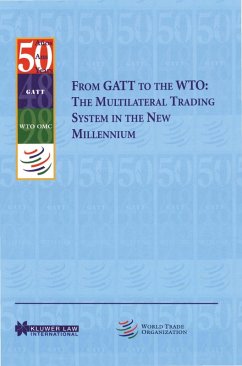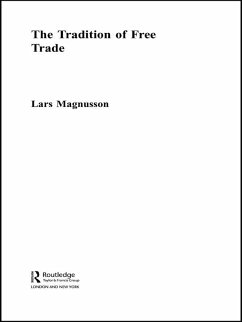
Free Markets and Social Regulation: A Reform Agenda of the Global Trading System (eBook, PDF)
A Reform Agenda of the Global Trading System

PAYBACK Punkte
70 °P sammeln!
Discussion of trade barriers has come round - inevitably it seems - to national regimes of regulatory protection. As the author of this important analysis writes: 'Global free trade is hard to imagine under circumstances in which each country seeks to regulate domestic social affairs in its own way, without regard to international norms.' Indeed, state regulation has the potential to undermine the very legitimacy of the global trading system. A compelling reconciliation between these two paramount values is essential.Free Markets and Social Regulation: A Reform Agenda of the Global Trading Sys...
Discussion of trade barriers has come round - inevitably it seems - to national regimes of regulatory protection. As the author of this important analysis writes: 'Global free trade is hard to imagine under circumstances in which each country seeks to regulate domestic social affairs in its own way, without regard to international norms.' Indeed, state regulation has the potential to undermine the very legitimacy of the global trading system. A compelling reconciliation between these two paramount values is essential.
Free Markets and Social Regulation: A Reform Agenda of the Global Trading System has a twofold purpose: to consider what has so far been accomplished in this vital mission in the field of international economic law, and to prescribe some solutions to continuing problems. This latter endeavor amounts to a coherent and integrated plan that will enhance the acceptability of free markets to governments, traders, and other stakeholders alike. The challenges analyzed in depth here include the following:
The author conducts his analysis in a broad context encompassing the WTO system, the European Union, and the North American Free Trade Agreement. He finds that the clash, despite the particular institutional characteristics of these various organizations, is a major concern of them all. The jus gentium of international trade, he offers, is an imperative combining the good faith principle with the communitarian duty to cooperate. Exactly how to go about ordering this imperative is what this book is about. Its clear focus on an urgent problem in the development of the global trading system will capture the attention of all practitioners and students of international economic law.
Free Markets and Social Regulation: A Reform Agenda of the Global Trading System has a twofold purpose: to consider what has so far been accomplished in this vital mission in the field of international economic law, and to prescribe some solutions to continuing problems. This latter endeavor amounts to a coherent and integrated plan that will enhance the acceptability of free markets to governments, traders, and other stakeholders alike. The challenges analyzed in depth here include the following:
- . the late development in the global trade regime of non-trade policy objectives, which still tend to be treated as mere exceptions to general obligations;
- . the built-in emphasis on products rather than measures;
- . the novel risks associated with the development of modern technology;
- . the case-by-case approach of WTO jurisprudence, which generally fails to investigate whether the substance of any given domestic regulation is necessary to the policy goals of the state in question; and
- . the 'technical and economic feasibility' of complying with international trade obligations.
The author conducts his analysis in a broad context encompassing the WTO system, the European Union, and the North American Free Trade Agreement. He finds that the clash, despite the particular institutional characteristics of these various organizations, is a major concern of them all. The jus gentium of international trade, he offers, is an imperative combining the good faith principle with the communitarian duty to cooperate. Exactly how to go about ordering this imperative is what this book is about. Its clear focus on an urgent problem in the development of the global trading system will capture the attention of all practitioners and students of international economic law.
Dieser Download kann aus rechtlichen Gründen nur mit Rechnungsadresse in A, B, BG, CY, CZ, D, DK, EW, E, FIN, F, GR, HR, H, IRL, I, LT, L, LR, M, NL, PL, P, R, S, SLO, SK ausgeliefert werden.













